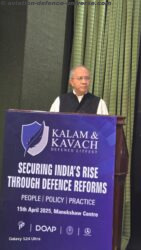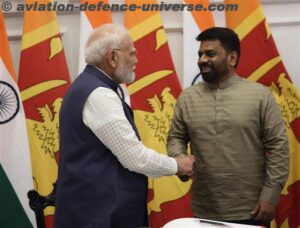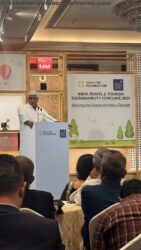By Jai Kumar Verma
New Delhi. 27 September 2020. Relationship between US and Iran which is at its lowest ebb, last week plummeted when US President Donald Trump re-imposed sanctions on Iran.
On 19 September 2020 US Secretary of State Mike Pompeo stated that “Today, the United States welcomes the return of virtually all previously terminated UN sanctions on the Islamic Republic of Iran, the world’s leading state sponsor of terror and anti-Semitism.” He also made it clear that sanctions would be effective from 0800 p.m. (Washington DC time) from 20 September 2020. The US government also explained that they “would impose” sanctions on the country which does not follow the sanctions. The statement further mentioned that “thanks to the snapback of UN sanctions, Iran is now obligated to suspend enrichment, reprocessing, and heavy-water-related activities. We will never let the world’s leading state sponsor of terror obtain the world’s most deadly weapon.” Pompeo also made it clear that the US domestic authorities would impose sanctions on the countries which do not implement the sanctions.
It appears that at present US is alone on imposing sanctions on Iran as US European allies are challenging the sanctions. The foreign ministers of France, German and the United Kingdom (E 3) issued a joint statement on 20 September that “France, Germany, and the United Kingdom note that the US ceased to be a participant to the JCPOA following their withdrawal from the deal on 8 May 2018. Consequently, the purported notification under paragraph 11 of UNSCR 2231 (2015), received from the United States of America and circulated to the UN Security Council Members, is incapable of having legal effect. It flows from this that any decisions and actions which would be taken based on this procedure or on its possible outcome would also be incapable of having any legal effect.” The Joint Comprehensive Plan of Action (JCPA) is a treaty formulated on 14 July 2015 at Vienna between Iran and the UN Security Council’s five permanent members + Germany (the P-5+1) and the European Union on the non-proliferation of Iranian nuclear programme.
Besides it countries like Russia and China are also opposing the unilateral decision of US. The Russian foreign ministry issued a statement that “”The illegitimate initiatives and actions of the United States by definition cannot have international legal consequences for other countries”. On 20 September, Hassan Rouhani President of Iran also stated during a televised cabinet meeting that as US is putting “maximum pressure” on Iran, US is facing “maximum isolation” as powerful nations have already rejected the sanctions imposed by US.
The 13 out of 15 United Nations Security Council (UNSC) members including US close allies also claim that the current move of US is null and void and only limited nations would reimpose the sanctions which were lifted in 2015. The arms embargo on Iran was imposed by UNSC in 2007 and it is scheduled to end on 18 October 2020. It was decided by several countries including Iran, United States, China, Russia, Britain, Germany, and France so that Iran can be prevented from developing nuclear weapons. President Trump claimed that it was a worst agreement and left it in 2018. However, Britain, France and Germany told to UNSC that relief from sanctions to Iran would remain even after 20 September.
The ‘snapback’ or quick return to UN sanctions would mean that Iran has to suspend all activities related to nuclear research, enrichment, reprocessing, import or development of nuclear weapon delivery system. The arms embargo would be re-enforced, and Iran would be prohibited from developing ballistic missiles. It is expected that President Trump would issue an executive order so that US can put sanction on any country which defies the UN arms ban on Iran.
Several countries believe that Iran is developing nuclear weapons hence several restrictions were imposed on Iran. The sanctions on Iran was levied by US in November 1979 when extremist Iranian students captured US Embassy in Tehran and took several Americans as hostages. US issued an executive order and about $ 12 billion of Iran were seized. The sanctions were removed in January 1981 after Algiers Accords under which hostages were released.
The second sanctions on Iran were imposed in 1987 because of anti-US activities and its support for terrorism. The sanctions were extended till 1995. The third sanctions were inflicted in December 2006 when Iran refused to stop its uranium enrichment program. Iran claims that its nuclear programme is for peaceful purposes including electricity generation and medical purposes but the world especially US does not believe this and claims that Iran wants to develop nuclear warheads which will be dangerous for the world peace. On 2 April 2015 the P5+1 and Iran reached on an provisional agreement under which most of the sanctions would be removed and in turn Iran will accept the restrictions for next ten years. Nevertheless, President Trump declared on 8 May 2018 that US would withdraw from the Iran nuclear deal.
US imposed fourth sanction on Iran in November 2018 to force Iran to stop its assistance to terrorist outfits and shelve the development of ballistic missiles. In 2019 US enhanced the sanctions as it was believed that Iran was behind the attack on Saudi Arabia’s oil fields. Iran was also put on the black list of Financial Action Task Force (FATF). The US again put a resolution in UNSC to extend arms embargo on Iran beyond 18 October 2020, but the resolution was overruled by UNSC. Again, on 25 August UNO impeded US efforts to re-enforce snapback sanctions on Iran. Hence on 20 September US unilaterally imposed sanctions on Iran.
These sanctions has adversely affected Iran’s $ 483 billion oil-dominated economy and the people of the country. The Iranian exports suffered and had an adverse impact on its nuclear programme as it became difficult to import specialised equipment and material required for the nuclear programme. Iranian foreign minister also accepted that the sanctions have untoward effect. China emerged as the biggest trading partner of Iran. Not only this the sanctions have adverse effect on Iran’s oil and energy sectors as Iran is not able to procure necessary equipment and several foreign oil companies withdrew from Iran. The Iranian Rial was considerably devalued after imposition of sanctions. Besides economic crisis there was also adverse political effect of the sanctions as public is suffering and resentment is growing against President Hassan Rouhani who became president on 3 August 2013. Although there is no sanction against pharmaceuticals and medical equipment, but the country is facing acute shortage of several drugs. The import of drugs from USA and other countries have considerably reduced. The smuggling of drugs is also increased. Large number of civil society activists, intellectuals, students, academics and human right activists joined a civil movement against these sanctions and mentioned that these sanctions are “unfair”, “illegal”, biased and prejudiced.
There is an old history of animosity between Iran and US and it also enhanced when Major General Qasem Soleimani was killed in a US air strike at Baghdad International Airport on 3 January 2020. The missile attack on Major General Soleimani was personally approved by President Trump.
However, at present imposing of sanctions by President Trump, when its own allies and other world powers are against it, surprised the analysts. It appears that President trump imposed the latest sanctions in view of the forthcoming elections. Firstly, it will please the Sunni voters in US as the hostility between Shia and Sunni has increased all over the world. Sunni voters are pleased because of re-imposing the sanctions on Iran. Secondly the Sunni countries like Saudi Arabia and UAE will also be delighted as Iran is there foremost enemy. Both these countries will purchase armaments from US, and it will generate employment and will give financial benefit to the US. The Jew lobby which is very strong in US will also be happy as Iran is the biggest enemy of Israel. US also signed an accord with Afghan Taliban but it appears there are several hurdles in the deal and President Trump may not get full political benefit hence he needed more support.
(Jai Kumar Verma is a Delhi-based strategic analyst and member of United Services Institute of India and Institute for Defence Studies and Analyses. The views in the article are solely the author’s. He can be contacted at editor.adu@gmail.com)




























































































































